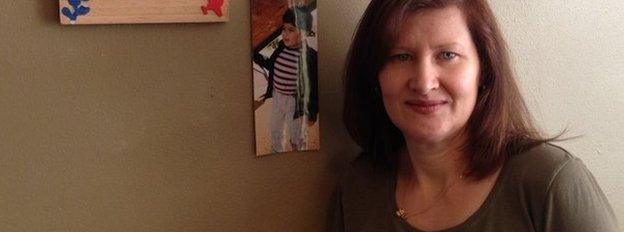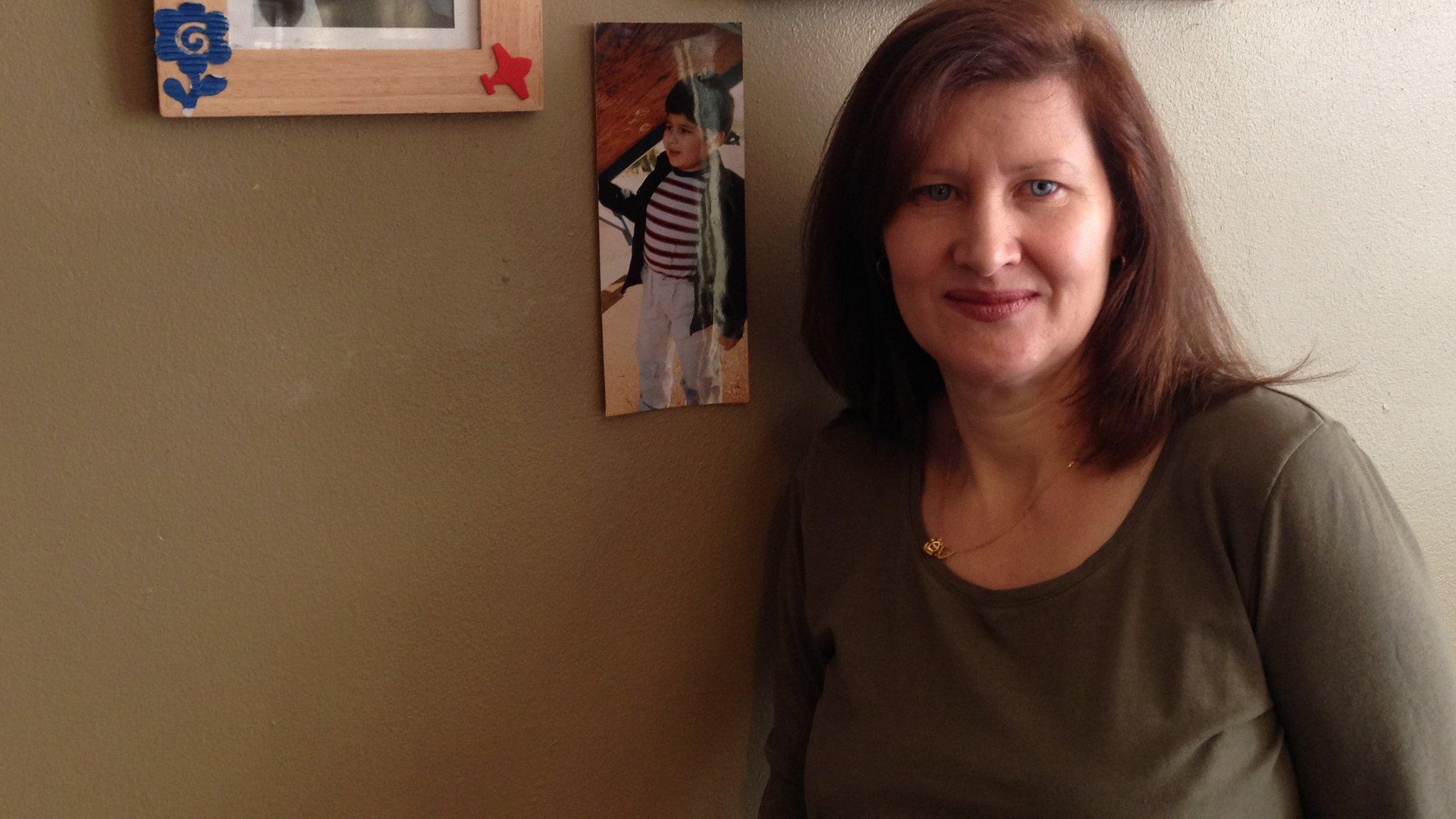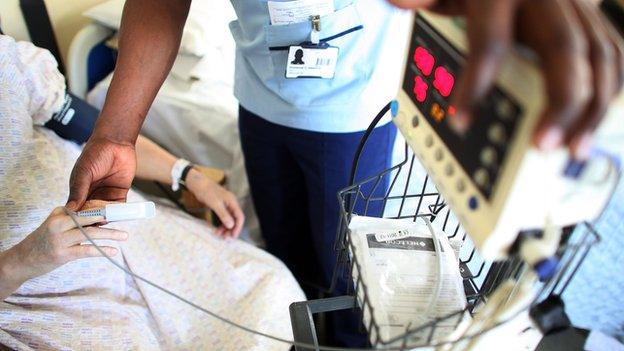Care for people with learning disabilities 'failing', report says
- Published
Phill Wills: "We have fought tooth and nail to get the care provided in Cornwall"
People with learning disabilities in England are being kept in hospitals far from home for too long, a review says.
The report, written by Sir Stephen Bubb, recommends introducing a charter of rights and more community facilities for people with learning disabilities.
It also says some "inappropriate" in-patient facilities should be closed.
The report comes after abuse was exposed at Winterbourne View care home in Bristol in 2011.
Sir Stephen, chief executive of the Association of Chief Executives of Voluntary Organisations (ACEVO), was asked by NHS England how to address "serious shortcomings" in support for those with learning disabilities.
The report - Winterbourne View - Time for Change, external - offers 10 recommendations for the NHS, local government, regulators and the government.

'We weren't being listened to'
Phill Wills, whose son Josh has a learning disability and severe autism, has to travel 300 miles from Cornwall to see him at a treatment hospital in Birmingham.
He told BBC News he has "fought tooth and nail" to have Josh's care provided nearer to his home.
"When we felt that we weren't being listened to, it felt like Josh wasn't being listened to," he said.

Leo Andrade has to travel 80 miles to see her son
Leo Andrade, whose 19-year-old-son Steven also has severe autism and lives in a hospital in Northampton, welcomed the report.
Mrs Andrade lives in London and spends up to four hours travelling to see her son. She said she has "no trust whatsoever in the system".
"I do not want my son again in any other institution," she said. "I also find the idea that having my son away from us is robbing us of having a family."

'Immediate action'
Other recommendations include a framework to support people with learning disabilities and autism move out of hospitals and into the community.
Its other recommendations include:
the introduction of a charter of rights for people with learning disabilities and/or autism and their families
giving people with learning disabilities and their families a "right to challenge" decisions and the right to request a personal budget
a requirement for local decision-makers to follow a mandatory framework setting out who is responsible for which services and how they will be held to account
a planned closure programme of "inappropriate" in-patient facilities
improved training and education for NHS, local government and service provider staff
the founding of a social investment fund to build community-based services
Sir Stephen said the Winterbourne View "scandal" had "shocked the nation" and that had led to pressure to prevent such a case from happening again.
Neglect and abuse of patients by staff at the Winterbourne View private hospital, near Bristol, was uncovered by BBC Panorama. Six people were jailed in 2012 and five given suspended sentences.
Sir Stephen said: "We urge immediate action, to close all Winterbourne-style institutions and ramp up community provision.
Sir Stephen Bubb: "We should be able to close institutions that hurt rather than help people"
"We need a new charter of rights to empower people with learning disabilities and their families, and give them the right to challenge the system. We need that system to have the courage to act on these recommendations, and not to promise another false dawn.
"The time for talk is over. It's time for people with learning disabilities or autism and their families to be put first."
'More to do'
Prime Minister David Cameron said: "We have got to do more to get people out of hospitals and into loving and caring homes in the community."
Labour leader Ed Miliband said there were still more people with learning disabilities moving into care than leaving.
Gary Bourlet from advocacy group People First England, who has a learning disability, said: "The report is full of good words. But there's not much here that hasn't been said before.
"We need someone to take charge of making change happen. And that person should be working alongside someone with a learning disability. We call that co-working. And we need a timetable as well."
NHS England chief executive Simon Stevens has called for "radical changes" in care for those with learning disabilities, saying it would mean "challenging legacy models of institutional care".
"NHS England's recent work with people with learning disabilities, and this new report, all now prove that radical changes are needed in NHS and social care," he said.
'Active role'
Jane Cummings, chief nursing officer for England, said: "This report asks every part of the system to respond. We are committed to playing a full and active role in the implementation of the recommendations and call on others to do the same."
She said work was already being done to introduce the recommendations and that the number of people being discharged from hospital was increasing. But she admitted more needed to be done to stop people being admitted.
NHS England said all local NHS leaders must now have a register of inpatients with learning disabilities and autism to create informed local care plans.
It is also carrying out care and treatment reviews, which looks at whether a patient is receiving the right care in the right place and takes into account the patient's requests.
NHS England expects about 1,000 reviews, which are supported by clinicians as well as NHS and local authority commissioners, to have taken place by the end of the year.
- Published26 November 2014

- Published26 October 2012

- Published26 October 2012

- Published6 November 2012
